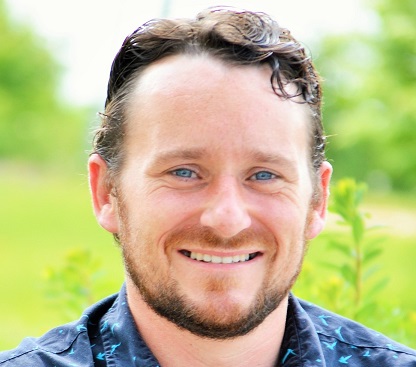Having adopted a new structure over the past year, Island Water Technologies is hoping to double installations of its Sentry unit this year, focusing on its key markets of California and the U.K.
Charlottetown-based IWT last year took on capital to finance a restructuring, so it became a holding company for two main subsidiaries. Sentry uses a real-time bio-electrode sensor to collect and analyze the data of water utilities and help them to improve performance.
And the Regen unit produces a solar-powered system that can treat waste water for remote facilities ideally housing 75 to 250 people. This subsidiary, headed by CEO Andrew Matthews, is growing, mainly by meeting the needs of a single client in Saudi Arabia.
IWT Founder and CEO Patrick Kiely is overseeing the Sentry business, which he says is far more scalable than the water treatment facilities that were the company’s bread and butter for the first seven years of its existence.
“For 2020, we’ve opened a new round and we’re talking to strategic investors,” said Kiely in an interview. “We want to go from 50 to 100 [Sentry installations] this year, and we're continuing to focus mainly on California and the U.K.”
Kiely said the company was founded on the vision of producing a sensor-based technology that could analyze the biology of water in major treatment plants. Once there was a significant body of data, IWT would help utilities understand their processes and take steps to improve quality and efficiency.
But it needed a few years of data before it could work with utilities in a meaningful way. So for the first few years, it generated revenues through small-scale water-treatment installations – the Regen product and a product called ClearPod for individual households.
By 2018, the company was ready to focus more on Sentry, as the data product is known. Early in that year, IWT was accepted into Imagine H2O, a Silicon Valley-based accelerator for startups focused on water.
Attending this accelerator was a major milestone in the company’s development, Kiely said, partly because it happened just as the company reached the threshold at which it could go to market with Sentry.
“We got to 20 installed end of 2018 and then to 50 by end of 2019,” he said, adding the installations are spread across Canada and the U.S., and in such countries as China, India and Brazil.
Britain and California proved key markets for different reasons. England and Wales have a dozen different private water utilities, all of them overseen by the regulator Water Services Regulation Authority. Ofwat, as it is known, is demanding these companies improve performance, so they need the data that Sentry can provide to show they’re meeting the regulator’s demands.
“And California, they’ve simply invested in managing their wastewater,” said Kiely. “There’s a culture there of constant improvement and innovation and giving people the resources and time to do things better.”
Most of IWT’s nine staff members now work in the Sentry operation, and the company plans to hire more sales people this year. Having received capital in the past from such investors as Island Capital Partners and Natural Products Canada, the company last year raised some capital from ICP and other investors to finance the restructuring.
Now Kiely is raising money again with a target of $1 million.










